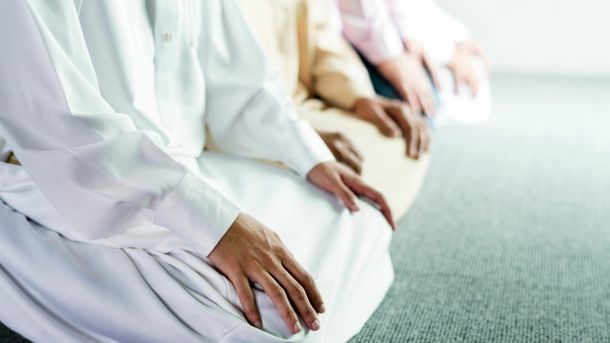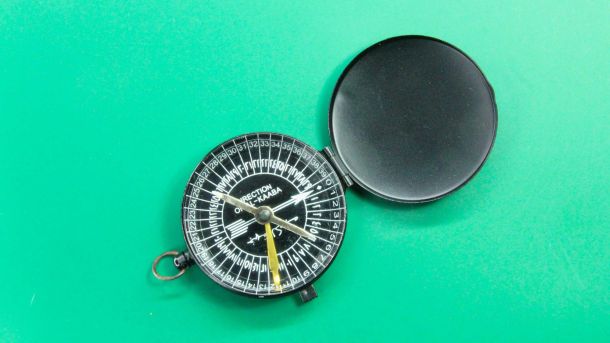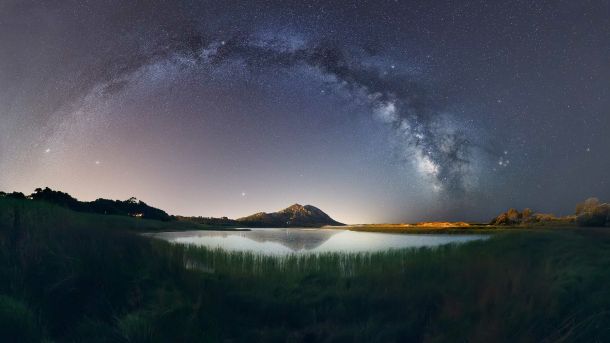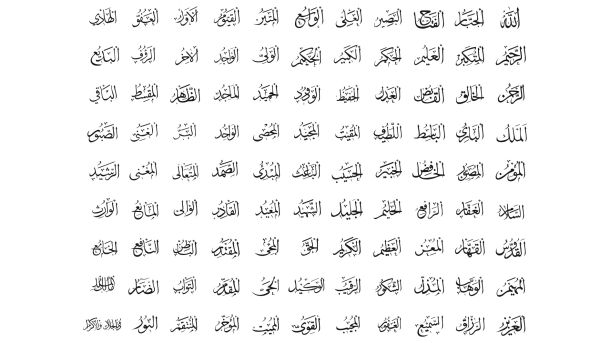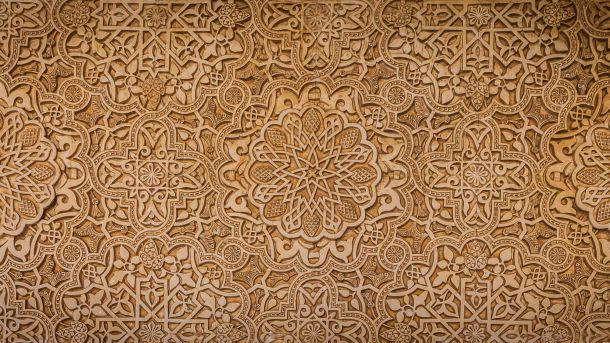News Archive
Mar 15, 2024
An Explanation of the Opening Invocations of Ṣalāh
After stating the takbīr and raising the hands to begin the ṣalāh, a person should say the opening invocation:
سُبْحَانَكَ اللَّهُمَّ وَبِحَمْدِكَ
Glory and praise be to You O Allāh
وَتَبَارَكَ اسْمُكَ
Blessed be thy name,
وَتَعَالَى جَدُّكَ
Your greatness is raised
وَلَا إِلَهَ غَيْرُكَ
And there is nothing worship in truth besides You
The Interpretation of ‘Glory and Praise Be to You O Allāh’ (سُبْحَانَكَ اللَّهُمَّ وَبِحَمْدِكَ)
This statement consists of both the negation of that which is unbefitting to Allāh, while also consisting of an affirmation. The negation aspect is in the stateme…
Mar 7, 2024
The Responsibility of Determining the Direction of the Qiblah: For the Resident and the Traveller
The Stance of the Ḥanbalī Madh`hab Concerning Determining the Qiblah
It is the opinion of the Ḥanbalī madh`hab that if one prays without expending scholarly strife to determine the direction of the qiblah or imitating the opinion of another, should he find someone with such knowledge, then he must repeat his prayer. As for our saying “without expending scholarly strife to determine the direction of the qiblah” that is provided he is able to put forward such strife in its determination. As for “or imitating the opinion of another should he find someone with such knowledge”, this applies to one…
Mar 7, 2024
The Ruling on the Imām Stretching and Differentiating the Enunciation of the Different Takbīrs During Ṣalāh
[Q]: How should one enunciate the takbīr during ṣalāh?
[A]: The scholars have said: It is disliked for one to stretch or draw it out. Even when saying the takbīr while rising from sujūd, or when descending to it from the standing position despite both movements being relatively prolonged. They say: This is because the extension of this statement in ṣalāh was never narrated in the Sunnah. It should, therefore, be considered disliked. This is the position adopted by the scholars (رحمهم الله).
However, it is most apparent that there is flexibility in this matter. The takbīr may be extended som…
Mar 7, 2024
Does Allāh Test His Servants to Learn About Them?
The saying of the Most High:
وَمَا جَعَلْنَا الْقِبْلَةَ الَّتِي كُنتَ عَلَيْهَا إِلَّا لِنَعْلَمَ مَن يَتَّبِعُ الرَّسُولَ مِمَّن يَنقَلِبُ عَلَىٰ عَقِبَيْهِ
“And We made the qiblah (prayer direction towards Jerusalem) which you used to face, only to test those who followed the Messenger (Muḥammad (صلى الله عليه وسلم)) from those who would turn on their heels (i.e. disobey the Messenger (صلى الله عليه وسلم)).”
(Al-Baqarah, 2:143)
Imām Muḥammad Amīn al-Shanqīṭī comments:
An ignorant person may surmise that the apparent meaning of this verse implies that the Most High gains knowledge from thi…
Mar 7, 2024
Guidelines on Boycotting the People of Innovation
[Q]: May Allāh reward you with good and bless you. A questioner asks: O’ Shaykh, when is boycotting the people of innovation and the people of disobedience considered legitimate according to the Sharīʿah, so that the legislative goal of this great principle (boycotting) can be actualized?
[A]: Firstly, boycotting is the foundation for the one who is able to do so, or can call others to do so, while being someone whose command is obeyed, the people carrying out his directives and staying clear of what he prohibits.
Boycotting the people of innovation and the people of disobedience i…
Mar 7, 2024
Working with People of Innovation and Partisanship in Worldly Affairs
[Q]: May Allāh reward you with good…is it permissible to deal with ḥizbīs in worldly matters like business? Keeping in mind that some of the youth engage in this while saying, “I only deal with them in worldly matters”.
[A]: I say: if you are able to keep your distance from innovators without engaging them in any activity—religious or worldly—then do so.
As for religious activities, otherwise known as daʿwah activities, do not enable them. Do not help them build mosques in which they spread their innovation, nor schools through which they spread their innovation, nor printing books in which…
Mar 7, 2024
A Simple Guide to Allāh’s Perfect Names and Lofty Attributes
Al-Ghani (الغني): The Rich; Free of all Wants
Allāh—the Most High—said:
يَا أَيُّهَا النَّاسُ أَنتُمُ الْفُقَرَاءُ إِلَى اللَّهِ ۖ وَاللَّهُ هُوَ الْغَنِيُّ الْحَمِيدُ
“O mankind! It is you who stand in need of Allāh, but Allāh is Rich (free of all wants and needs), worthy of all praise.”
(Fāṭir, 35:15)
He—the Most High—is al-Ghani: The One who has complete and encompassing richness, in every conceivable way. This is because of His complete perfection and the perfection of His attributes such that no form or manner of deficiency may be associated with Him. He could not be except in a state of…
Feb 29, 2024
New Muslims Who May Not Be Able to Pronounce Arabic in Prayer
[Q]: If a person is not able to speak Arabic or pronounce its words, what should he do when praying ṣalāh?1
[A]: We have a judicial principle concerning which Allāh says:
لَا يُكَلِّفُ اللَّهُ نَفْسًا إِلَّا وُسْعَهَا
“Allāh burdens not a person beyond his scope.”
(Al-Baqarah, 2: 286)
The Most High also said:
فَاتَّقُوا اللَّهَ مَا اسْتَطَعْتُمْ
“So keep your duty to Allāh and fear Him as much as you can.”
(Al-Taghābun, 64:16)
And the Prophet (صلى الله عليه وسلم) said: “If I command you with an act, then perform it to the best of your abilities”.2 In consideration of these evidences, this pe…
